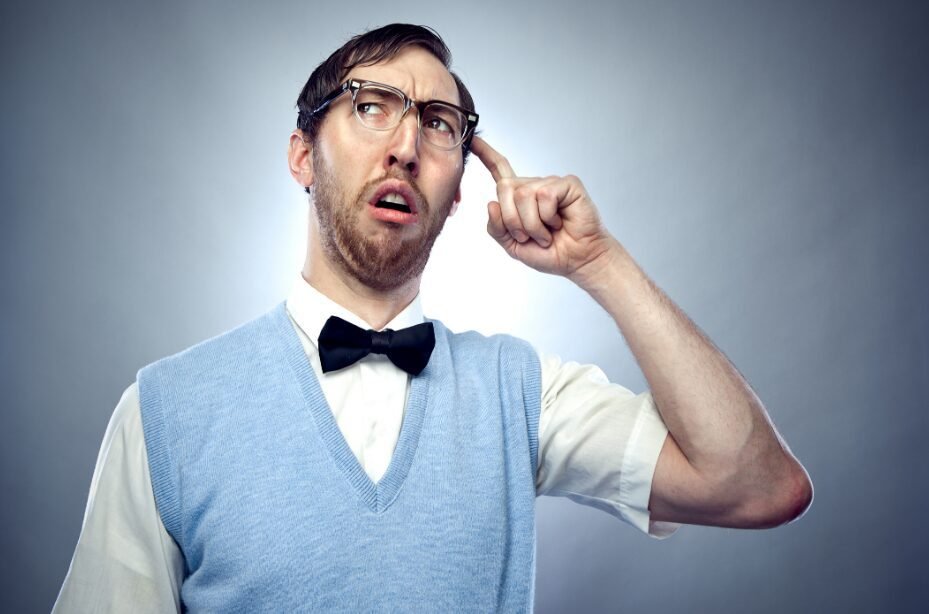Molière said some 400 years ago, “an enlightened fool is dumber than an ignorant fool.”
You might be surprised, but the most intelligent people can make dumb mistakes during their life, and today, we will prove it.
Big Mistakes of Brilliant Minds
- Steve Jobs. Co-founder and chairman of Apple and top shareholder of Disney, he died of cancer at age 56 after refusing for months to have surgery to follow a special diet of alternative medicine.
- Linus Pauling. A Nobel Laureate in Chemistry for discovering the nature of chemical bonds, he spent years claiming that vitamin supplements cured cancer.
- Kary Mullis. He won the Nobel Prize in Chemistry for his discovery of the polymerase chain reaction but denied the existence of the AIDS virus and climate change. He believed in astral travel.
- Paul Frampton. A brilliant physicist who is a dark matter expert, he was tricked by a former Miss Bikini on a dating website and ended up in prison for travelling with a suitcase loaded with drugs.
- Arthur Conan Doyle. The British writer and doctor, the creator of Sherlock Holmes, believed in fairies, attended spiritualists five times a week and said his wife had powers.
- Thomas Edison. After making the first electric light bulb, he unleashed a ridiculous public relations war against alternating current and in favor of direct current.

The day he was diagnosed with a strange pancreatic cancer, Steve Jobs, then president of Apple, emailed all his employees to reassure them.
“I have a sporadic form of cancer called a neuroendocrine tumor,” the email read. “It can be cured if surgically removed after being diagnosed early.” Seven years later, he died.
His official biographer, Walter Isaacson, then revealed that for nine months in 2004, Jobs, one of the great geniuses of the twentieth century, had refused to have surgery. Jobs refused it because the intervention was too “invasive” and had decided to treat the disease with acupuncture sessions, spiritualists, and natural juices.
“How could such an intelligent man do such a stupid thing?” Isaacson was asked one night on CBS.
“He believed that if you ignore something if you don’t want something to exist, there is magical thinking that eliminates it.”
Technically, Jobs fell victim to the so-called intelligence trap.
“It is a pattern of attitudes and behaviours that leads educated and intelligent people to act stupidly because of their intellectual capacity and not despite it,” explains the English journalist David Robson.
He is a specialist in neuroscience and psychology and the author of an essay, The trap of intelligence: why intelligent people do nonsense and how to avoid it?
His book, which functions as a kind of survival manual for brilliant minds (with a “stupid detection kit” included), doesn’t just pick up the bruises of the iPhone’s creator. There is a long list of what we could call — with forgiveness — ready of the boat.
For example, Arthur Conan Doyle, a doctor of medicine and brilliant author of Sherlock Holmes, believed in fairies and went five or six times a week to a medium. Kary Mullis, Nobel Prize in Chemistry, denied the existence of the AIDS virus and climate change, although he defended astral travel and was convinced that extraterrestrials had abducted him.
Biochemist Linus Pauling, also a Nobel laureate, claimed that vitamin supplements cured cancer. And Thomas Edison insisted, after manufacturing the first electric light bulb, to campaign against the alternating current because he believed that direct current had more future.
Even Albert Einstein, the father of the theory of relativity and face of intelligence par excellence, lost his mind in the last years of his career trying unsuccessfully to demonstrate the grand theory of the unification of the laws of Physics to such an extent that his colleagues were embarrassed to cross with him through the corridors of the campus.
“His famous intuition drove him astray, making him blind and deaf to anything that contradicted his theories,” Robson writes.
“The smartest and most educated people tend to think they know everything there is to know about a topic and find it difficult to recognize the gaps in their knowledge,” the English journalist explains.
“They believe they have the license to ignore evidence that questions their views, leading them to have a more closed mind, and use their intellectual capacity to justify their opinions, even if they are demonstrably wrong.”
Molière said that “an enlightened fool is dumber than an ignorant fool.”
Which of the two is more dangerous for society: the one who is completely stupid or the one who is so intelligent that he deceives himself?
I would not want my book to be considered an anti-intellectual allegation, or to understand that ignorance is somehow preferable to education.
What I do believe is that we need greater recognition that even the brightest people are capable of making mistakes, and when they do, being in positions of greater responsibility, the consequences are incredibly serious.

David Robson imagines a car to explain his theory.
Our brain would be the engine, the raw power. “A more powerful engine takes you further and faster.
But he also needs another kit,” he explains. “You need brakes, steering and a GPS to follow the right route. Otherwise, I could end up on a cliff.”
Canadian psychologist Keith Stanovich was one of the first to highlight the differences between rationality and IQ tests.
The university entrance exams analysis observed that people with higher grades had a greater degree than others, what he called “a blind spot prejudice”. They were unable to see their shortcomings and were guided by their instincts.
Just like Steve Jobs curing pancreatic cancer with papaya buzz.
Robson’s essay now attributes to that bias countless individual errors and some of the worst man-made catastrophes in recent times, from the Deepwater Horizon oil rig explosion in 2010 to the Space Shuttle Columbia disaster in 2003 or the Concorde crash in 2000.
“When the intelligence trap passes from the individual level to the management of groups, the problem is even greater,” warns the English journalist.
“Whether to achieve higher productivity or due to arrogance, many companies discourage critical thinking and punish employees who raise doubts.
And we know that an unquestionable and uncritical stance can be a significant source of mistakes.
This phenomenon is known as functional stupidity: to seek a short-term return, potential risks that could have serious consequences are overlooked.”
Let’s look at another example.
In 2007 the Nokia phone company had almost half the market share worldwide.
Six years later, most of its customers already had an iPhone. Nokia’s engineers were among the best in the world, yet they were never allowed to question the company’s methods.
“The company’s overall level of experience and knowledge was huge, but they didn’t apply their collective intelligence effectively.
The intelligence trap is due to the inability to imagine an alternative view of the world in which our decisions are not the right ones.”
What happens when that trap traps our politicians?
-It has already happened to us. It is easy to find leaders who have become dogmatic and do not admit other points of view.
Today, humility is seen as a trait of weakness. Politicians are highly criticized if they hesitate to change their minds on an issue, and we consider strong leaders to be those who act quickly, with a lot of conviction.
Angela Merkel, for example, was criticized for her tendency to wait and gather information before taking a stand; there is even a new German verb, merkeln, to describe those doubts.
However, it has been shown that people with greater intellectual humility are best prepared to make decisions.
Is our education system prepared to teach our children, not just to be smart?
Our educational systems are very good at teaching us the knowledge of facts, but they do not encourage critical and rational thinking.
We assume that people acquire those skills as they go through life, but it’s not true. Entire generations are going through the education system without the essential ability to identify when they are deceived.
Since intelligence tests began to be applied more than 100 years ago, our IQ scores have not stopped growing.
Every day we are seemingly more intelligent, and today’s average person would have been considered a genius a century ago.
This is called the Flynn effect.
However, the latest studies argue that the trend could be decreasing, that we are close to maximum intelligence. “We’re smarter, but we’re not wiser,” Robson said. “We simply have a greater intellectual capacity to justify our decisions and beliefs, even if they are wrong and biased.”

How much is our intelligence worth today?
That criterion is set by society.
If we rewarded the undesirables, we would get undesirables like mushrooms.
